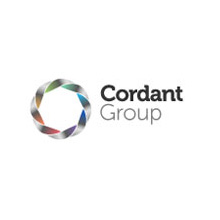 |
| Cordant strives to adopt sustainability principles throughout its supply chain |
Founded in 1957, Cordant remains a leader in recruitment and integrated facility services. Offering integrated services including recruitment, security, cleaning and technical electrical services, Cordant blend experience with industry knowledge and digital capabilities to create seamless processes which boost performance and profitability.
Cordant strives to adopt sustainability principles
Cordant Security is a specialist provider of security solutions, working with a national client base of high profile blue chip organisations with complex risk profiles, delivering a comprehensive and customer focused service, tailored to their needs. As the 8th largest security company within the UK, Cordant Security employs more than 4,000 personnel and works across a wide spectrum of industry sectors.
As an organisation, Cordant strives to adopt sustainability principles throughout its supply chain. Earlier this year, they approached GPT with a requirement to sustainably dispose of 20,000 obsolete uniforms. The challenge was exacerbated by the fact that uniforms designed for security and other FM related duties are not suitable for general wear and were therefore unsuitable for standard recycling methods.
To eliminate unrecyclable uniforms
The UK’s largest independent provider of waste management solutions and sustainable waste services, GPT Waste was commissioned by Cordant Security to review the company’s supply chain and help find a sustainable solution to eliminate the unrecyclable uniforms.
In order to meet the clients’ sustainability objectives, it was essential for GPT Waste to arrive at a solution which had minimal environmental impact. GPT Waste recommended the implementation of an innovative project that would turn the garments into Refuse Derived Fuel (RDF). This process uses new technology to capture the energy in non-recyclable waste and transform it into bricks or pellets that can be used to replace fossil fuels like coal or oil.
This solution was the most sustainable option for Cordant as every tonne of waste diverted from landfill eliminates 0.54 tonnes of carbon dioxide, equivalent to that being emitted in landfill gas. This is a significant saving in greenhouse gas emissions.
Results:
GPT processed a total weight of 1,846 kilogrammes to 1.846 tonnes of RDF (based on industry averages). The 1.846 tonne would produce an approximate 6120kWh. which is roughly how much energy is needed to power three small houses for a year or generate enough energy to power 55,000 kettles for an hour – that could make a lot of cups of tea! This is a significant output in exchange for discarded uniforms. By adopting this strategy, the recovery rate is also 100% or a 100% diversion from landfill, so the landfill rate is 0% which is fantastic.
Edward Macfarlane, Managing Director, Cordant Security, said:
“We worked in partnership with GPT waste to analyse the most efficient and practical solutions. We learnt lessons from across the multiple sectors in which we operate. However, we found that the RDF method would be of most use to our own business by supporting our commitment to sustainability. As this solution is also saving us money, it is an all-round win for the business!”
Mike Callaghan, Head of Business at GPT Waste, said:
“We are delighted to have been involved in this project working with such a prestigious organisation. The output was fantastic and it is great to see practical and efficient solutions put into action and to work with such a forward thinking company that are keen and enthusiastic about adopting sustainability principles throughout its supply chain.”
As the costs of landfill continue to rise, RDF technology is seen as an innovative solution to alleviate the environmental footprint of general waste. Cordant Security is looking at incorporating this process into its general uniform life-cycle programme and believes that other service providers might want to follow suit.



















